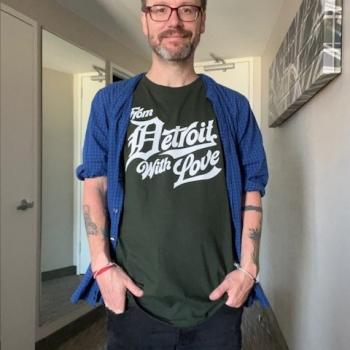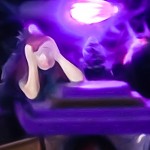A reader asked me a question and I thought I’d answer it here.
Reader says:
“I have trouble recognizing it when I am causing my own suffering with my thoughts. How can I realize that sooner?”
This is a great question.
Sometimes in life we don’t realize when the things we’re doing are harmful to us. We have this tendency to realize later that we were making a mistake, or lots of mistakes, and making things worse for ourselves. Or, even, creating a problem when there wasn’t one in the first place.
An example:
I started getting credit card offers the moment I turned 18, with lines of credit that seemed absurd for a college student. I don’t think credit card companies do this anymore, at least I hope not. (not because I think credit card companies are less predatory…I assume they’re not allowed to as much…)
Anyway, I was unsupervised when I went off to college and I overspent. A lot. Because I was allowed to. And…I think you know where this is going….I created suffering for myself. I created a lot of unnecessary suffering for my future self. And I didn’t realize it. Some of that is because I was a teenager, of course. But this is a thing we do in our lives. I just like this example because there is such an obvious cause and effect element to it, and also because I think overspending is a thing that a lot of people do. Sticking to a budget and building savings is something that many of us have trouble with these days.
But I also think about arguments. We all get into arguments, of course. Often we get in vicious arguments with the people we care about the most. And there have been times in arguments in my life when I’ve thought of THE PERFECT CUTTING REMARK. You know, the thing to say to make the other person feel really bad. The way to “win” the argument and shut them down.
Often that remark does more harm than good. In arguments we usually are escalating the situation instead of trying to make it better, at least in my experience. But at the time we usually aren’t thinking about that. During an argument we usually aren’t saying to ourselves, “Am I increasing my suffering?”
With my overspending example above, I had to learn how to ask myself, “Am I increasing my suffering?” Sometimes I’m really successful, as far as budgeting goes. And sometimes I’m struggling, to a greater or lesser degree, to keep that lesson in mind.
We have all sorts of issues like these, I think, where we make things worse for ourselves, where we look back and think “I was making a big mistake.” How many of us have dated (or married) the wrong person? And, after all was said and done, noticed a million red flags that we missed? We sometimes don’t see things that are right in front of us.
Now, I’ve identified the problem. There are probably endless examples we could come up with, and feel free to put some in the comments. I think it’s clear that this is a situation that all of us can relate to.
Life is full of suffering and a lot of the time we sometimes make our own suffering worse.
Now, what I can say is pretty general. Individual results will vary.
But the answer is what I will call intuition. No…Intuition. Some people call it a “gut feeling” and I think our Christian friends tend to call it “the small still voice within”. Buddhists tend to call it either “wisdom” or “prajna”.
It all amounts to the same thing, I think.
We have a deeper awareness. We might have different levels of ability as far as how well our intuition works and how good we are at listening to it, but it’s there for all of us. It’s our innate wisdom.
What we need to do to strengthen it is to cultivate space. If we have space to reflect before our actions, instead of just acting out of habit, then we can look into the situation and see if our intuition is trying to tell us something. When there are clues that something is a bad idea, our intuition usually is saying something to us about it. We see all sorts of clues intuitively that we don’t see intellectually.
This is where our training comes in. When we’re on the cushion, practicing mindfulness and awareness, a natural effect of that is our intuition gets a little better.
So, the only real advice I can give is to keep practicing diligently.
And when your gut speaks, listen.
———————————————————————-
have a question you want answered?
drop it in the comments and I’ll write about it in a future post.
———————————————————————-
![]()
Daniel Scharpenburg is a meditation instructor and dharma teacher in Kansas City. He regularly gives teachings through the Open Heart Project, the largest virtual mindfulness community in the world. Find out more about Daniel on his website and connect with him on Facebook.
————————————————————————————










